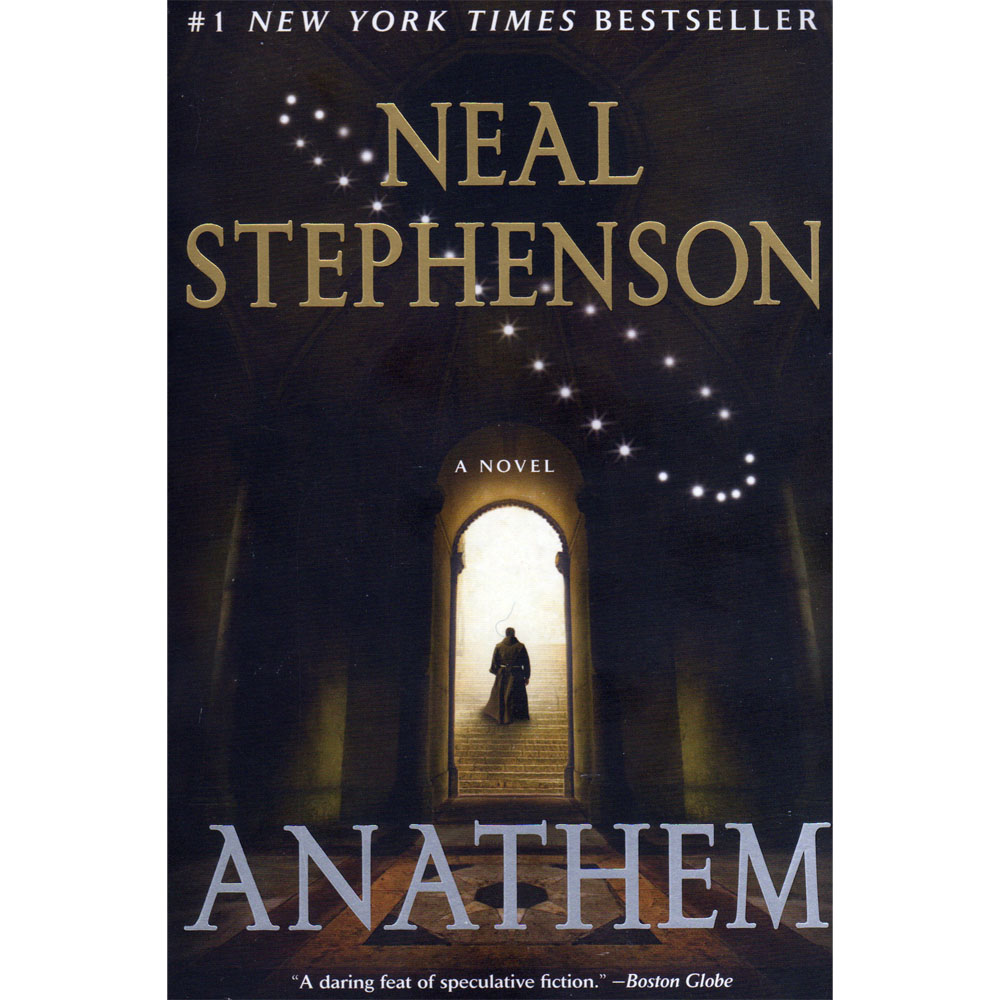This is not a review of Neal Stephenson’s Anathem, which was published in 2008 and which I very much enjoyed reading. Rather, this is about the concept of the “calca,” a term created by Stephenson in Anathem.
Stephenson made up a lot of language for Anathem, which is a thousand-page tome about a very erudite order of monks, and he helpfully includes a glossary in the back of the book. This is how he defines calca:
An explanation, definition, or lesson that is instrumental in developing some larger theme, but that has been moved aside from the main body of the dialog and encapsulated in a footnote or appendix.
The monks of Acorn Abbey instantly saw the usefulness of this concept, though we might define it a little differently. Instead of being moved aside from the main body of the dialog, the calca can embedded in the dialogue. The concept of the calca is important to me, because I am highly inclined to write calcas, and I put a considerable amount of research into them.
Calcas can be either magnificent, boring, or somewhere in between, depending on the reader’s interest and the writer’s skill. But one thing is guaranteed. If a reader disagrees with, or is offended by, the content of the calca, then the writer will be accused of sermonizing, pontificating, or speechifying, and a bad review is guaranteed.
For example, here is a link to a very long and erudite review of Anathem with the title “Why Anathem Sucks.” The reviewer says, among other things, “In all of these cases, the math is rushed over in order to get to some speechifying.” Ooof. The reviewer and the writer do not belong to the same school in the philosophy of mathematics.
To my taste as a nerd, calcas are some of the best elements of literature. Isaac Asimov wrote wonderful calcas, which were spoken by his characters as part of the dialogue. The Foundation series would amount to nothing without calcas. Robert Heinlein took some criticism for his fondness for libertarian calcas. Ayn Rand wrote calcas, though of course I see her calcas as sermonizing and pontificating because I disagree with her.
A style of writing that includes calcas is not to everyone’s taste. Many readers would like to just get on with the action. On the other hand, when we like characters in a story, and when we are in accord with the author’s ideas, we generally enjoy a nice conversation with the characters and a calca or two. Yoda is calca-izing, for example, when he says:
Fear is the path to the dark side. Fear leads to anger. Anger leads to hate. Hate leads to suffering.
I’ll leave you with a couple of mean-ass calcas in dialogue from a science fiction writer, Richard K. Morgan:
I have no excuses, least of all for God. Like all tyrants, he is not worthy of the spit you would waste on negotiations. The deal we have is infinitely simpler – I don’t call him to account, and he extends me the same courtesy.
The personal, as everyone’s so fucking fond of saying, is political. So if some idiot politician, some power player tries to execute policies that harm you or those you care about, take it personally. Get angry. The Machinery of Justice will not serve you here — it is slow and cold, and it is theirs, hardware and soft. Only the little people suffer at the hands of Justice; the creatures of power slide out from under with a wink and a grin. If you want justice, you will have to claw it from them. Make it personal. Do as much damage as you can. Get your message across. That way you stand a far better chance of being taken seriously next time. Of being considered dangerous. And make no mistake about this: being taken seriously, being considered dangerous, marks the difference — the only difference in their eyes — between players and little people. Players they will make deals with. Little people, they liquidate. And time and again they cream your liquidation, your displacement, your torture and brutal execution with the ultimate insult that it’s just business, it’s politics, it’s the way of the world, it’s a tough life, and that it’s nothing personal. Well, fuck them. Make it personal.

